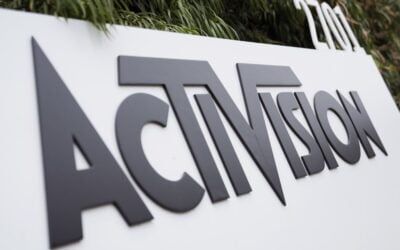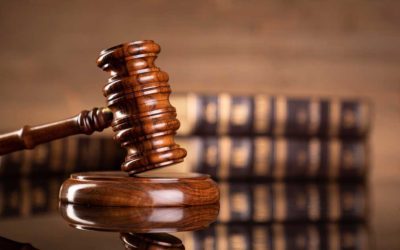Bankruptcy & Insolvency Notes Enforcement
Most business loans from banks or other lending institutions require the borrower to sign a promissory note that is often secured by the business’s assets. If the company lacks adequate assets to properly secure a loan, the lender may require that one or more of the business owners provide a personal guarantee. This guarantee allows the lender to seek payment from the business owner should the company become insolvent or file for bankruptcy.
A promissory note is a written contract promising to repay a loan that has been signed by the borrower. It allows for the enforcement of the borrower’s promise to pay the lender. The notes need not contain any specific language, but they usually include such items as the amount owed the lender, the interest rate to be charged, the due date for payments, and whether the borrower has offered any security for the note.
One of the standard forms of security for promissory notes is a pledge of real property in the form of a mortgage or a deed of trust. Another common method used by businesses to secure a promissory note is the pledge of assets such as business equipment or inventory.
When a business lacks adequate real property or business assets to serve as security for a promissory note, one or more of its owners may offer a personal guarantee. A personal guarantee is an agreement allowing a lender to go after the personal assets of an owner if the company defaults on its loan. In some cases, the personal guarantee includes a security interest in the owner’s property, usually in the form of a lien, that makes it easier to seek enforcement in the event of a default.
If the business faces insolvency and needs to liquidate using Chapter 7 bankruptcy, its assets will be turned over to the bankruptcy trustee. The trustee will then distribute them among the business’s creditors, including those holding promissory notes, on a pro-rata basis. If the business had few assets when it declared Chapter 7 bankruptcy, it is likely the holder of an unsecured promissory note will only receive a fraction of what it is owed. Secured creditors may petition the trustee to seize the secured assets.
Businesses that file for Chapter 11 bankruptcy seek to reorganize in a manner that will allow them to continue their operations while offering partial payment to unsecured lenders, like the holders of unsecured promissory notes. While Chapter 11 provides businesses with an automatic stay that stops all proceedings against the debtor until a restructuring plan is approved, secured creditors may seek relief from the stay to foreclose on the secured assets.
Business bankruptcy provides little protection for individuals who have personally guaranteed promissory notes because the lender can still look to the guarantor to repay the loan. Additionally, in some situations, the bankruptcy trustee will view the guarantee as a business asset and look to the guarantor’s personal assets to repay creditors.
However, most personal guarantees to repay business loans qualify for discharge if the business owner files for personal bankruptcy. In cases where the personal guarantee included a lien on the owner’s personal property, the lien will not be discharged by the personal bankruptcy and is still subject to enforcement by the lender.
The attorneys at Thomas H. Curran Associates are experienced in representing creditors in business bankruptcy proceedings and can ensure that lenders holding promissory notes receive the largest possible payout. Additionally, our attorneys can assist lenders in the drafting of enforceable promissory notes that provide the highest level of protection to creditors in a business bankruptcy proceeding.
Litigation Practice Results
Recent successful cases handled by the attorneys at Thomas H. Curran Associates. Find more here »
Thomas H. Curran Associates Secures Appellate Victory in Insurance Coverage Dispute
In a significant legal victory, Thomas H. Curran Associates (THCA), representing the Plaintiff-Appellant, successfully overturned a trial...
Supreme Court Denies Final Appeal, Finalizing Judgement Obtained by THCA
On June 24, 2024, the Supreme Court of the United States declined the petition to review filed by Sean Dunne and his ex-wife Gayle...
Thomas H. Curran Associates Secures Appellate Victory as Massachusetts Supreme Judicial Court Denies Appellant’s Attempt to Shortcut Ordinary Appellate Review
Thomas H. Curran Associates recently obtained an appellate victory in the Massachusetts Supreme Judicial Court on May 26, 2023, in the...
Thomas H. Curran Associates win is Affirmed in Florida, U.S. District Court – Client Wins Attorneys Fees
Law: Federal Rule of Civil Procedure 37(a)(5) Case: Premier Capital, LLC v. Larry Bryan (AP) Underlying Bankruptcy Case: In re Larry Bryan...
The Second Circuit Affirms Bankruptcy Fraud Judgment Obtained by Thomas H. Curran Associates, Recognizing the Continuous Concealment Doctrine
Law: Continuous concealment doctrine, 11 USC § 727(a)(2)(A), In re Olivier, 819 F.2d 550 (5th Cir. 1987); In re Boyer, 328 F. App’x 711,...
Thomas H. Curran Associates prevails on barring discharge due to fraud by debtor
Thomas H. Curran Associates recently secured a victory on behalf of an institutional asset manager, where the Bankruptcy Court for the...
Thomas H. Curran Associates Secures Appellate Victory in Insurance Coverage Dispute
In a significant legal victory, Thomas H. Curran Associates (THCA), representing the Plaintiff-Appellant, successfully overturned a trial...
Supreme Court Denies Final Appeal, Finalizing Judgement Obtained by THCA
On June 24, 2024, the Supreme Court of the United States declined the petition to review filed by Sean Dunne and his ex-wife Gayle...
Thomas H. Curran Associates Secures Appellate Victory as Massachusetts Supreme Judicial Court Denies Appellant’s Attempt to Shortcut Ordinary Appellate Review
Thomas H. Curran Associates recently obtained an appellate victory in the Massachusetts Supreme Judicial Court on May 26, 2023, in the...
Thomas H. Curran Associates win is Affirmed in Florida, U.S. District Court – Client Wins Attorneys Fees
Law: Federal Rule of Civil Procedure 37(a)(5) Case: Premier Capital, LLC v. Larry Bryan (AP) Underlying Bankruptcy Case: In re Larry Bryan...
Thomas H. Curran Associates Secures Appellate Victory in Insurance Coverage Dispute
In a significant legal victory, Thomas H. Curran Associates (THCA), representing the Plaintiff-Appellant, successfully overturned a trial...
Supreme Court Denies Final Appeal, Finalizing Judgement Obtained by THCA
On June 24, 2024, the Supreme Court of the United States declined the petition to review filed by Sean Dunne and his ex-wife Gayle...
Thomas H. Curran Associates Secures Appellate Victory as Massachusetts Supreme Judicial Court Denies Appellant’s Attempt to Shortcut Ordinary Appellate Review
Thomas H. Curran Associates recently obtained an appellate victory in the Massachusetts Supreme Judicial Court on May 26, 2023, in the...
Litigation Areas of Expertise
Litigation News
Disciplinary judge approves lawyer’s suspension for using ChatGPT to generate fake cases | Colorado Politics
Recently, a Colorado lawyer received disciplinary action for employing artificial intelligence to generate fake case citations in a legal...
US appeals court proposes AI restrictions in all court filings | Jurist
In November, the US Court of Appeals for the Fifth Circuit proposed a new rule requiring lawyers to certify that they either did not use...
Mallinckrodt’s Second Bankruptcy Would cut $1 Billion from Opioid Settlement | STL Today
The Irish based company, Mallinckrodt’s, second bankruptcy may place creditors in ownership of the company and cut $1 billion from the...
The FTC’s case against Microsoft’s Activision acquisition is not going well | Vox
Microsoft and Activision Blizzard are overcoming hurdles to their $69 billion dollar merger. If the merger goes through, Microsoft will...
California Rejects Viking River, Allows PAGA Claims to Proceed | JDSUPRA
Case: Adolph v. Uber Tech., Inc. The California Supreme Court recently rejected the U.S. Supreme Court’s interpretation of the Private...
Supreme Court allows construction to resume on the Mountain Valley Pipeline | AP News
The Court’s ruling affirmed that, in some instances, Congress may have power over federal courts. The pipeline has faced significant...
Disciplinary judge approves lawyer’s suspension for using ChatGPT to generate fake cases | Colorado Politics
Recently, a Colorado lawyer received disciplinary action for employing artificial intelligence to generate fake case citations in a legal...
US appeals court proposes AI restrictions in all court filings | Jurist
In November, the US Court of Appeals for the Fifth Circuit proposed a new rule requiring lawyers to certify that they either did not use...
Mallinckrodt’s Second Bankruptcy Would cut $1 Billion from Opioid Settlement | STL Today
The Irish based company, Mallinckrodt’s, second bankruptcy may place creditors in ownership of the company and cut $1 billion from the...
The FTC’s case against Microsoft’s Activision acquisition is not going well | Vox
Microsoft and Activision Blizzard are overcoming hurdles to their $69 billion dollar merger. If the merger goes through, Microsoft will...
Disciplinary judge approves lawyer’s suspension for using ChatGPT to generate fake cases | Colorado Politics
Recently, a Colorado lawyer received disciplinary action for employing artificial intelligence to generate fake case citations in a legal...
US appeals court proposes AI restrictions in all court filings | Jurist
In November, the US Court of Appeals for the Fifth Circuit proposed a new rule requiring lawyers to certify that they either did not use...
Mallinckrodt’s Second Bankruptcy Would cut $1 Billion from Opioid Settlement | STL Today
The Irish based company, Mallinckrodt’s, second bankruptcy may place creditors in ownership of the company and cut $1 billion from the...
Contact Us
Are You In Need of Legal Counsel for Commercial Litigation, Business Transaction Matters, or a Bankruptcy Matter?
Contact our team today.
Call us at (617) 207-8670 or use the quick contact form below.
Austin Office
7710 N. FM 620
Building 13-D
Austin, TX 78726
Boston Office
15 Broad Street
Suite 610
Boston, MA 02109
New York Office
17 State Street
40th Floor
New York, NY 10004
London Office
The Leadenhall Building
Level 30
122 Leadenhall Street
London EC3V 4AB
Tags: bankruptcy and insolvency notes enforcement bankruptcy notes enforcement bankruptcy guarantee enforcement




